Language course in Brighton
Studying foreign languages; Brighton
Why did you choose to go to Brighton, England?
So, I must admit that Brighton was not my first choice, as Javier (the friend who I went with) and I had been looking at the same one-month course in Bournemouth instead. We knew for sure we wanted to go to England, since it called to us more than, for example, Ireland or other much more expensive places, for example cities in the USA or Australia. After being told that our language course did not have places in Bournemouth, we were simply looking for another similar option in a seaside town in the south of England (which is where we were told that they speak better English) and we ended up choosing Brighton over Portsmouth, Eastbourne or Southampton to name a few.
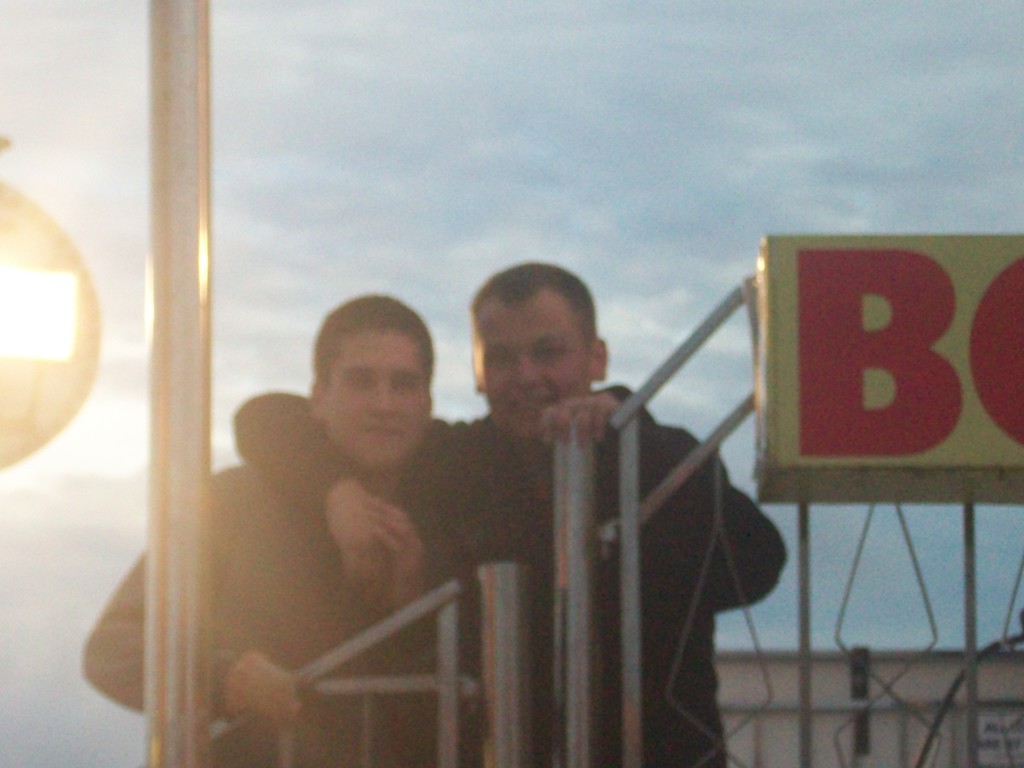
Javi and I before going on one of the attractions on Brighton Pier
How long was your stay? How much money did you receive to help?
The grant was administered by the ministry of education, it didn't have an exact duration of time, they just gave you a sum of money and after that you search for a course through any of the dedicated agencies (we chose EF), or you look for a course in England, in one of the licensed academies there, and you prepare it all yourself, plan accommodation, meals and more. We received 2000 euros for the course in Brighton which was a little under a month, which included accommodation, return flights, food, books, an excursion organised by staff and other activities within the city.
How is student life in Brighton?
In summer, I remember Brighton being a very lively city, with a young atmosphere. I imagine that it influences the large number of students that were there, as from Spain alone I think that there was something like 100 new students arriving every week. But there were also students from many other places and not just going to the EF academy, but to any of the many others in the city. The area around Churchill Square, which we could define as the centre of the city, as it is where most of the shops and areas of young people were concentrated, was overflowing with people every afternoon, I think the average age of the people there was not over twenty-one.
Would you recommend the city and studying English at the EF school to other students?
I would recommend the city in a heartbeat, as I think it's the perfect place to be a student for those who like going out and don't want to spend the whole day shut indoors. It's a city where there is always something to do and it is also well-located geographically when it comes to being able to travel to other places quickly. Having beach can also be a point in its favor, but the waters of the English Channel are very cold, but still you can take a dip.
When it comes to the language school, I believe that they teach English in the correct way, and I think you can learn a lot of English in little time. Obviously, in under a month you will not return to Spain bilingual, but it is plenty to get some advanced knowledge of the language, and with bit of effort and especially if you make effort with students from other countries (forcing you to speak English), you will greatly improve your level in a short space of time.
How's the country's food?
In reality I had no problems with English food. I was 'lucky' to be able to live with a family where the father was Indian as he prepared a wide variety of food. We ate a lot of fruit and vegetables, but never anything that I actually disliked. It's also common knowledge that English food is nothing to write home about.
Was it hard to find accommodation in Brighton?
No, just after having decided on the destination (Brighton), the next thing we did after we contacted the EF agency was to arrange for us to live in a house with an English family, instead of looking for an apartment for us our own or finding a room in the dorms in the city. The families that housed Javier and I lived in the same area, but we did not stay in the same place together.
In my case I can say that I was very lucky because the family did not give me any problems, and also gave me a lot of freedom to come and go without any time restrictions. The woman and the man worked most of the day, so the only time we saw them was at breakfast, in the morning. At night when we were coming home they were already asleep and at noon my friends and I ate alone. As for my companions, I had no problems whatsoever, what's more, I was quite lucky. I had to share a room with an Italian named Simone and a Frenchman named Alex, and living with them was very good. I ended up having a good friendship with the Italian and we understood each other quite well, not so much with the French, but without any problems.
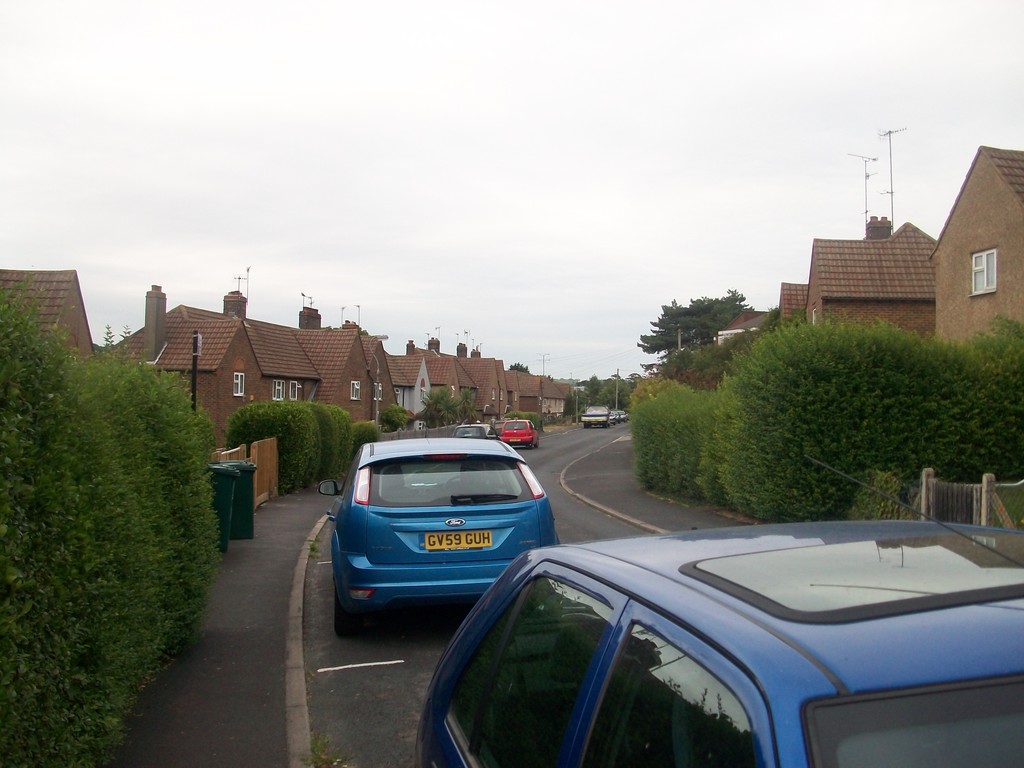
The street where I lived in the north of the city
There were other people who did have some problems with their host family or with their room mates, with whom they were living (also students), and the best is to change houses as soon as possible in such cases, as otherwise the month can become an ordeal.
How much does it cost to live in Brighton?
Really I don't know, because as I said I went with a fixed price which included everything. But the cost of living is clearly more expensive than in Spain and I imagine that renting a room in a house or a studio is quite pricey. A really good option if you're going to study there for the duration of a course or a longer period of time, is to live in one of the student residences which can be found in the city. But I cannot give too much information about these, as I wasn't in one, but I imagine that there'll be a web page online where you can find all the details.
How is the language? Did you really learn English?
Upon arrival, my language level was what I considered to be medium-low, but since I had obtained a good grade on the exam they gave us to assess our level, I started at B1.
After completing the course after just under a month, we had another exam, where I stayed with the same with a B1, but honestly I think I learned a lot of the language, especially when it came to expressing and understanding what people were saying to me. My written and reading levels were perhaps lower, since we did not spend as much time on those as the others, after all, we were interacting in English all day.
What's the cheapest way of getting to Brighton from your hometown?
A plane to London is the best option. Once you're in England, you will see that the amount of train links is immense and there's a direct line between London and Brighton. Another option is to go by bus from London to Brighton, but this takes much longer and can be dull.
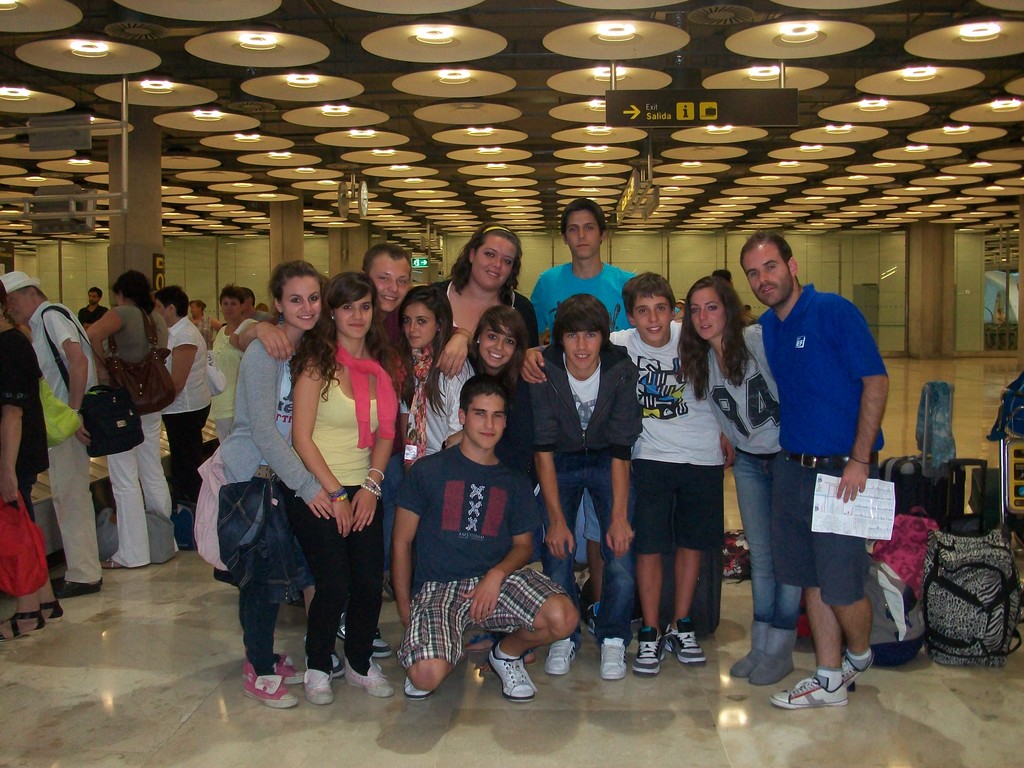
When we were flying back to Spain, one of the last photos we took
What places would you recommend for a night out in Brighton?
Near Churchill square there are two or three streets which go down towards the beach and there you will find a large number of bars and clubs, which are filled with people, especially at the weekends.
On West Street you'll find what is said to be the city's main club, Oceana. During the evenings in these streets there are always PR people giving out flyers to enter some of the bars and cubs without having to queue and with discounts on drinks, beers and shots. Also, as in summer there are many foreign students, you will find the PR people come from different countries, amongst which for sure there's a Spaniard, and if you can form some sort of 'friendship' with them, they'll save you some tickets and flyers.
What about eating out in Brighton? Can you tell us your favourite places?
I didn't go to many restaurants during my time there, I only went to fast food places or pizzerias. But I remember there being a place close to West street which had a buffet where for £12, you could eat as much as you want for an hour. I'm sure this place was quite good and it even had a queue to enter it during weekends so you had to book early or on the day before. But I didn't go to any 'good' restaurants.
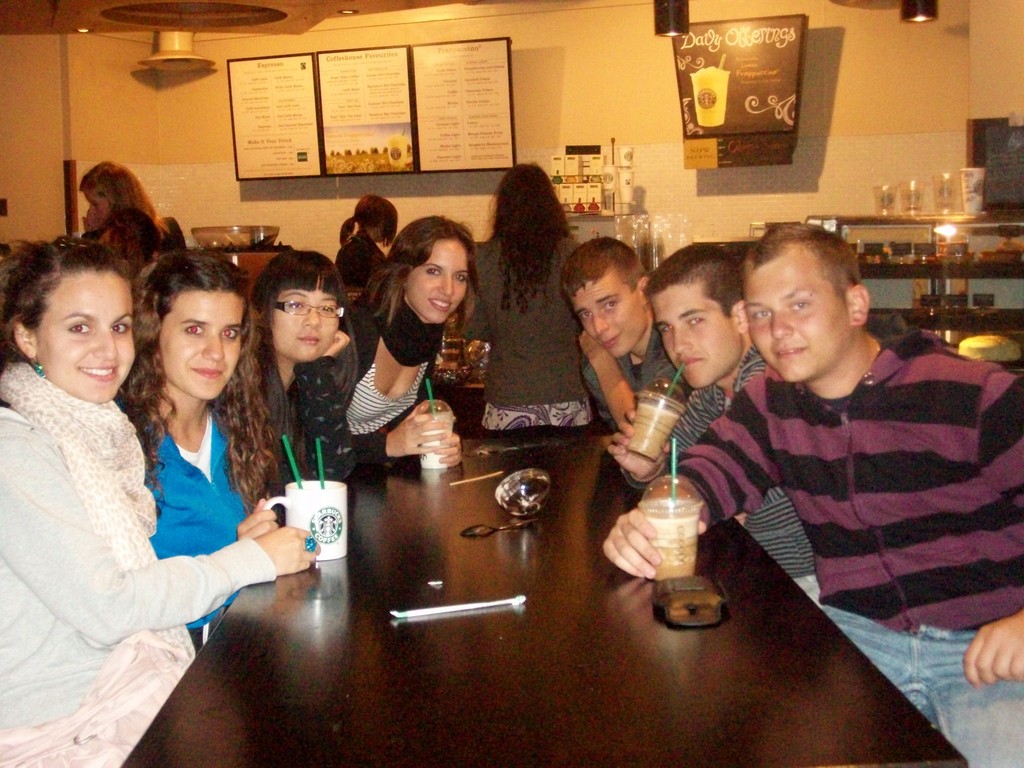
One of the Starbucks
As in cities all over the world, there are interesting things to see in Brighton. If you're going to be there for the duration of a course or for several months, you should visit all the museums, theatres and interesting places; The Royal Pavilion, Brighton Museum and Art Gallery, The Lanes, Brighton Pier, Brighton Marina, Brighton watchtower, North Laine, Stanmer Park, Preston Manor...In another post I will try to explain a bit more about what there is to see and what each attraction has to offer.
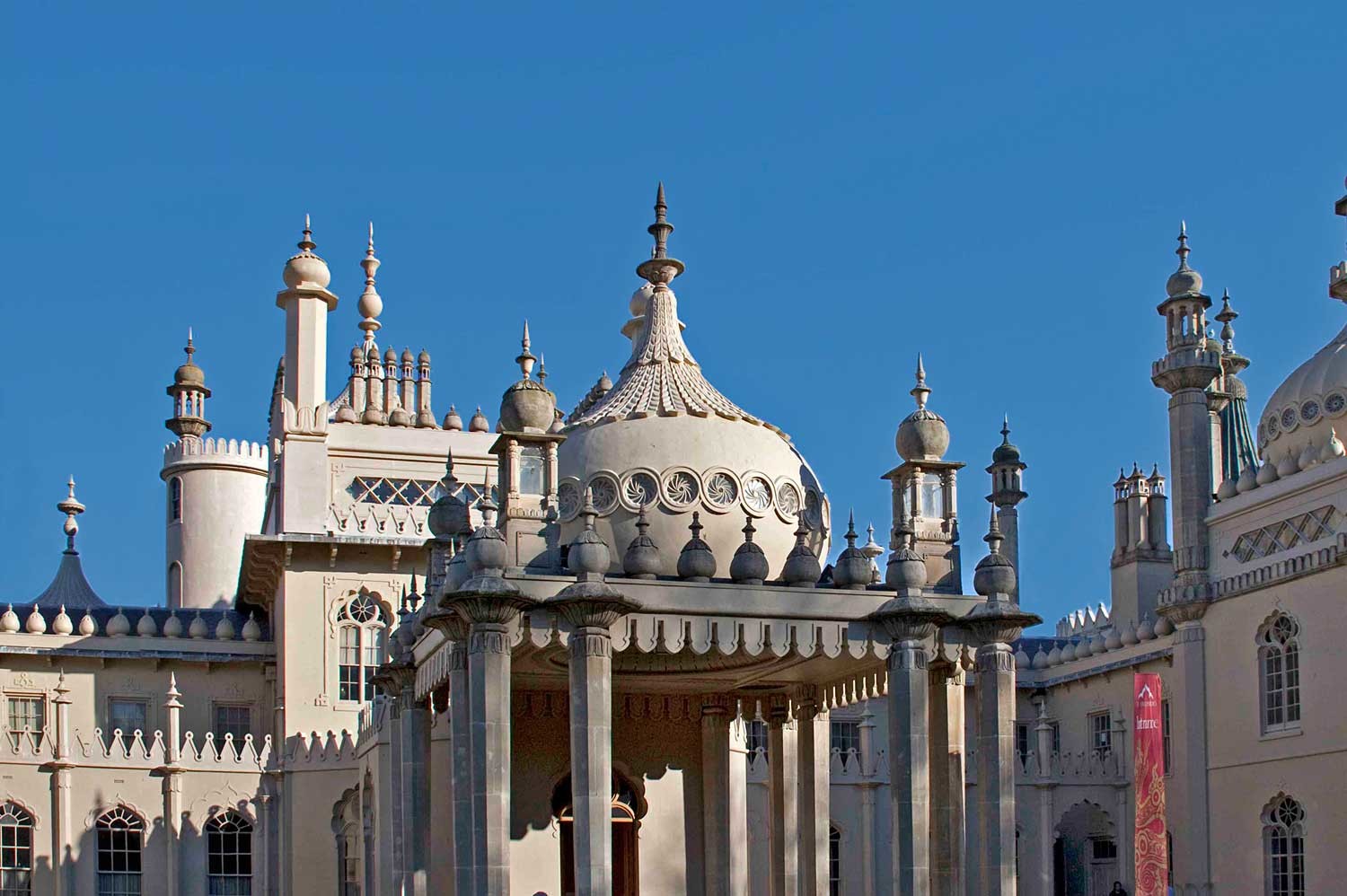
The Royal Pavilion
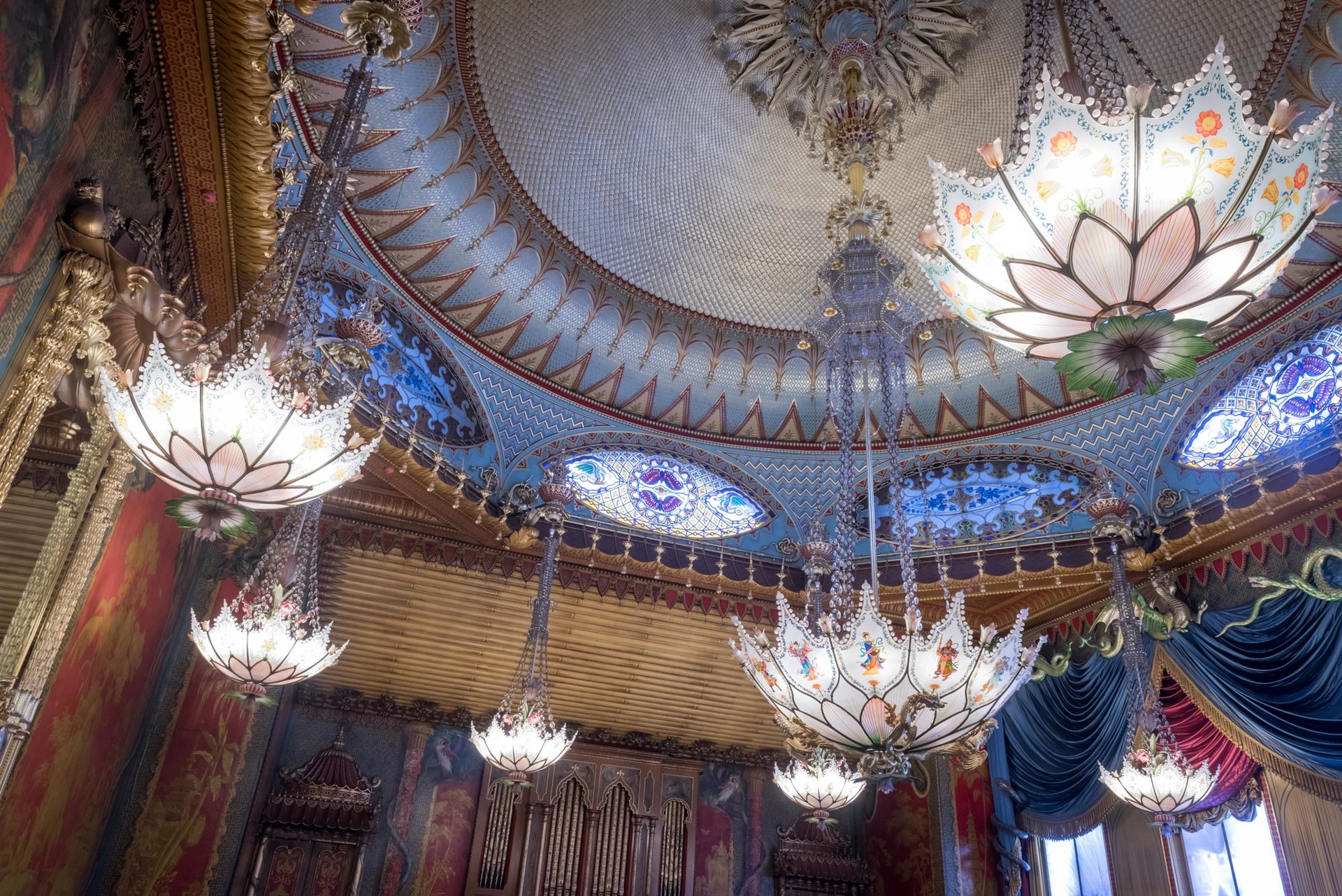
The interior of the Pavilion
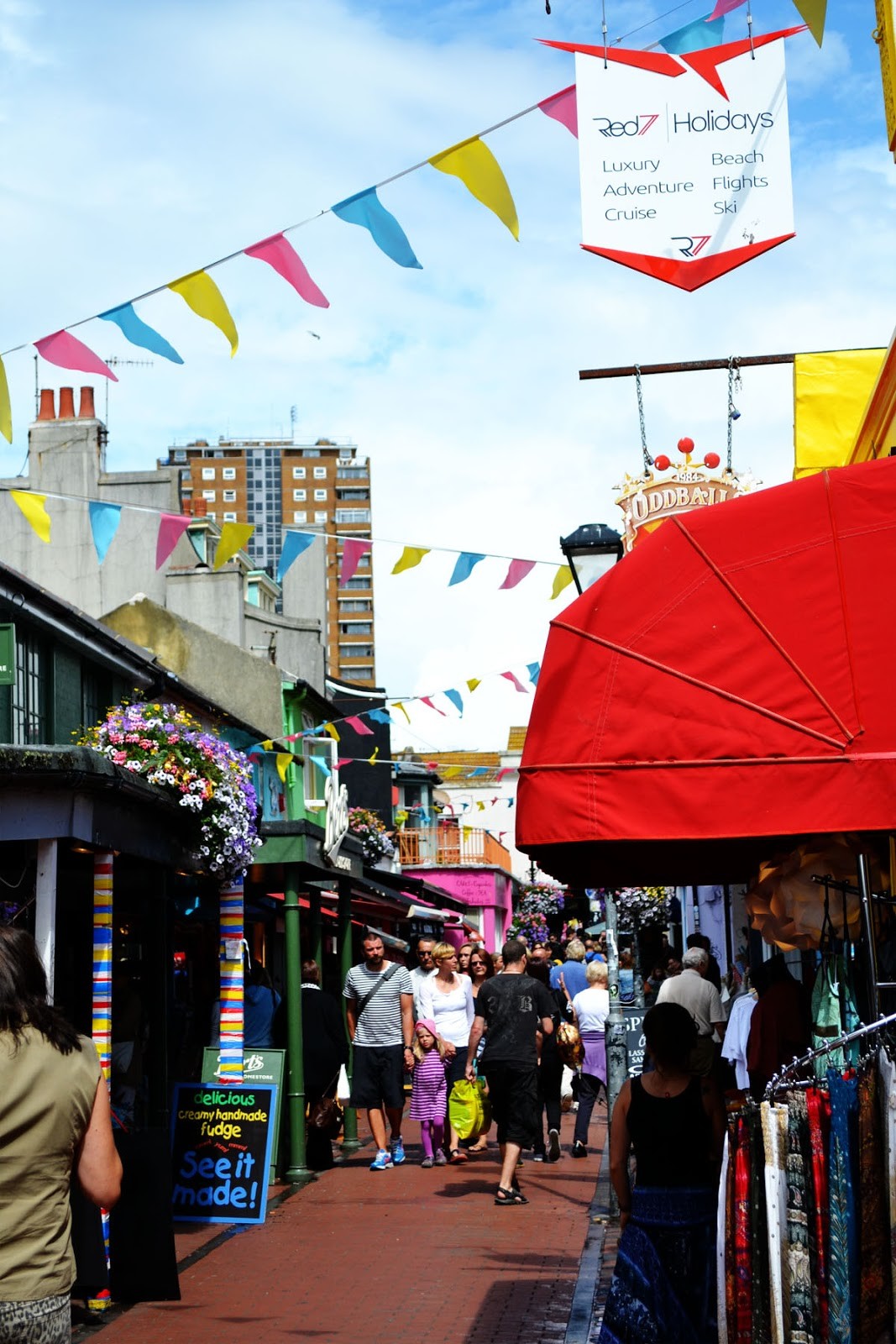
The Lanes
Anyway, Brighton is close to London and many other cities on the English coast, so you will not run out of places to visit.
When it comes to culture, Brighton is famous for being a very open-minded city, without going further out, here is where one of the biggest gay festivals in Europe is celebrated. And they usually also have a number of events taking place in concerts halls and outdoor venues, especially in summer. There is also a wide range of museums of all kinds and theatre shows.
Do you have any advice for students coming to Brighton?
Just try to enjoy it, despite being not very big city, it has a great atmosphere, is located in an enviable area and you will undoubtedly have the opportunity to meet many different people. I think that as a city to learn English, is the best aside from London or a Birmingham, yet is equally full of opportunities.
Another piece of advice I would give you, would be to get a bus pass, as it will be an indispensable element in your day to day life and the intercity bus network is very well organised and is the fastest way to get around the city. I think that there were passes for fifteen days and for a month and naturally the one month comes out cheaper, but still it must be said that public transport is somewhat expensive.
Photo gallery
Content available in other languages
- Español: Curso de idiomas en Brighton
Want to have your own Erasmus blog?
If you are experiencing living abroad, you're an avid traveller or want to promote the city where you live... create your own blog and share your adventures!
I want to create my Erasmus blog! →























Comments (0 comments)